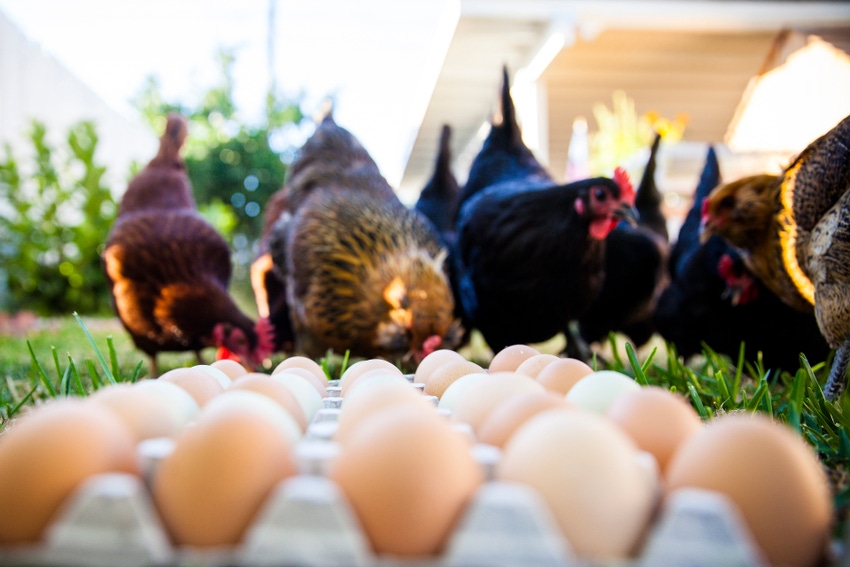Michigan signs into law new cage-free egg standards
All eggs sold in Michigan must be from cage-free hens by 2025 to align with customer commitments.

In 2009, the Michigan legislature passed a law that phased in bans on certain confinement practices for farmed animals, including egg-laying hens. On Thursday, Michigan Lt. Gov. Garlin Gilchrist signed a bill that, among other things, establishes a new law that would require compliance by 2025 and align Michigan egg producers’ timeline to change to cage free with many of the marketplace commitments to be cage free by 2025.
Allison Brink, Michigan Allied Poultry Industries (MAPI) executive director, said over the past 10 years, Michigan’s family egg farmers worked to take a positive step in making the transition. Currently, more than 50% of production is cage free by 2020, with another 1 million birds projected to move to cage-free systems by the end of next year. Still, Brink said the extension on the cage-free systems was needed to assist producers.
“Conversions are not a simple process,” she said. “It takes a lot of capital and time to convert the housing to cage-free.”
The spacing requirement will remain at 2017 United Egg Producers guidelines regarding spacing of 144 sq. in. per bird and include standards for nest space, perch requirements, dust bathing and enrichment scratch pads.
The bill, S. 174., provides a more appropriate amount of time to meet the new standard, Brink said, adding that it allows Michigan to be a leader in the nation for cage-free egg production in an emerging and growing market sector. Brink also noted that S. 174 updates biosecurity, disease outbreak response and livestock indemnification requests from the industry.
“Michigan’s family egg farmers applaud the Whitmer Administration for positioning Michigan as a national leader in cage-free egg production,” Brink said following the law’s signature. “While consumers are demanding more cage-free eggs, it is Michigan’s law that will inspire greater integrity and transparency across the U.S. food system and allow hard-working farm families to continue for generations.”
The National Egg Farmers Assn. (NEFA) has been opposed to the legislation and urged the governor to veto the bill.
“While the state’s egg farmers are hoping for more time in dealing with the pressures from animal activists, the goal of the legislation is to ban eggs from caged facilities being shipped into the state. We find that objectionable to the majority of egg farmers. It sets a precedence for other states to follow,” NEFA president Ken Klippen warned.
The Humane Society of the United States (HSUS) praised the bill and said the new law follows legislation passed recently in Massachusetts, California, Washington and Oregon.
“Countless individuals and groups in Michigan worked tirelessly to advance this significant legislation, including the governor’s office, lawmakers from both parties, thoughtful members of the agricultural sector and Michigan’s huge community of animal advocates,” said Josh Balk, HSUS vice president of farm animal protection. “With Michigan joining the list of states banning the extreme confinement of hens, the total transformation of the egg industry is well underway."
Meanwhile, oral arguments were given Nov. 18 in the North American Meat Institute’s challenge to California’s Proposition 12 requirements, which also require cage-free specifications for all eggs sold in the state. It is unknown how quickly a ruling may come down on the measure, which would require the change by 2020.
About the Author(s)
You May Also Like





